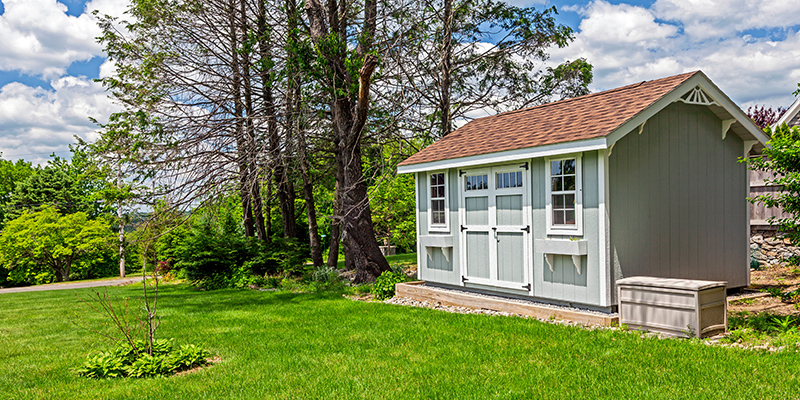Should You Become A Self-Managed Homeowners Association?

Is becoming a self-managed homeowners association the right decision for your HOA? Before you make a choice, you must first consider what self-management entails.
Browse By Category
Sign up for Our Newsletter
Is becoming a self-managed homeowners association the right decision for your HOA? Before you make a choice, you must first consider what self-management entails.
What Does It Mean to Become a Self-Managed Homeowners Association?
Homeowners associations come in two general kinds — professionally managed and self-managed. A professionally managed HOA is one that employs an HOA management company to take care of its daily operations. In this case, the board does not perform the more tedious tasks but is instead consigned to a more decision-making capacity.
In contrast, a self-managed homeowners association receives no help from an HOA management company. Instead, it relies solely on its HOA board, which is composed of volunteers from the community. A self-managed board performs all the tasks that a management company normally would, including but not limited to homeowner communication, accounting, rule enforcement, dispute resolution, maintenance management, and the like.
The Benefits of a Self-Managed Homeowners Association
Before deciding whether or not to turn to self-management, it is important to first weigh the pros and cons of the decision. Here are the benefits of being a self-managed homeowners association.
1. More Room in the Budget
Perhaps the most obvious benefit of self-management is that it is cheaper. Hiring an HOA management company costs money as these companies usually charge monthly management fees in addition to other fees.
Self-management, though, means you can redistribute the portion of the budget supposedly dedicated to management fees. You also have the option of subtracting the amount outright, which will result in lower HOA dues. And many associations, in fact, resort to self-management because of financial struggles.
2. Independence
The other benefit of self-management is independence when it comes to governance. Without an HOA management company, your board has total control over the association and its happenings. You make all the decisions even up to the smallest ones such as deciding which toilet paper to use in the common area toilets.
Unfortunately, the autonomy associated with self-governance also has its downsides. Without an HOA manager guiding the board, the community can fall to mismanagement. It also opens up issues with transparency and accountability. Board members can start taking sides and the lack of a neutral party in between can quickly cause situations to escalate.
The Risks of a Self-Managed Homeowners Association
Switching to self-management may have its benefits, but it also has its pitfalls. Here are the downsides of becoming a self-managed homeowners association.
1. Poor Management
Self-managed associations can easily fall into the trap of poor management. Board members often don’t have enough time to devote to association business. After all, you have your own personal and professional lives to deal with. And serving on a self-managed board is a full-time job.
Apart from a lack of time, there is also the problem of inexperience or a lack of expertise. While some self-managed HOAs are fortunate enough to have someone with business acumen or legal knowledge on their board, others are not as lucky. Without sufficient knowledge or experience, an HOA board can quickly fall victim to inefficient operations.
2. Lack of Interest
Some residents only run for a position on the board because they have ulterior motives. Once their main point of concern is resolved, they phone it in for the rest of their term. Others simply couldn’t care less about the goings-on in the community.
Indifference may not seem like the worst risk for a self-managed homeowners association, but it is still a risk. Board members who don’t care about what happens to the association are less inclined to make informed decisions. They don’t do their due diligence or put in the work at all. Because of this, the association and your board may become open to liability.
3. Troublesome
Let’s face it — serving on an HOA board can be a bother. You need to put in the time and effort, not to mention familiarize yourself with a multitude of documents and procedures. Beyond that, you should be prepared to field countless questions and complaints from residents — some of them during an ungodly hour. But, as a board member, that’s just the reality of the job.
4. Vulnerable to Liability
An unfamiliarity with the law and how it affects your association can leave you exposed to liability. And anytime liability is involved, proper insurance coverage is essential.
Your self-managed HOA may have insurance, but do you really know enough about the subject to understand your policies? And how do you know whether or not you have sufficient coverage? Due to a lack of expertise, you might leave your association underinsured. And when the time comes, you may end up shouldering a large uncovered expense.
Is Self-Management Right for Your HOA?
And now the million-dollar question — should your HOA become a self-managed one? Unfortunately, the answer isn’t a simple yes or no. There are a few things you must consider before making a decision.
First and foremost, you must assess your board’s skills and expertise. Are the members of your board equipped with the proper knowledge and experience to handle the various aspects of HOA management? You must also check whether or not your board can dedicate enough time to the job.
Next, you should look at the size of your association as well as the nature of your common areas. Generally speaking, a smaller HOA with 10 or fewer units is easier to manage without professional assistance. Self-management is also suited for communities with less common area space or amenities. The bigger the size of the community, the harder it becomes to manage alone.
Finally, you should consider your budget. For many associations, hiring an HOA management company simply isn’t feasible due to financial constraints. But, there are a lot of companies that offer great services at reasonable rates. Erasing management fees from your budget might make sense in the short run. But, forgoing professional management can drag property values down in the long term.
Since no two associations are exactly alike, the answer to the question of whether or not to convert to self-management really depends on your unique circumstances. Examine your association from these angles and you will certainly come to a decision.
The Alternative to Self-Management
There are certainly many benefits to becoming a self-managed homeowners association. It saves money upfront and gives your board more autonomy. But, it also comes with its disadvantages. As long as you’re prepared to take on its risks and have thoroughly considered the decision, then go ahead and give self-management a shot.
If you come to the conclusion that self-management is not for you, though, our online directory can be of service. Look for the best HOA management companies in your area today by browsing our website.
RELATED ARTICLES:
- Self Management vs Professional HOA Management
- 9 Steps On How To Change HOA Management Company
- The Ins And Outs Of Covenant Enforcement For Your HOA
Trending Now
Related Article
Sign up for Our Monthly Newsletter
Sign up below for monthly updates on all HOA Resource
















